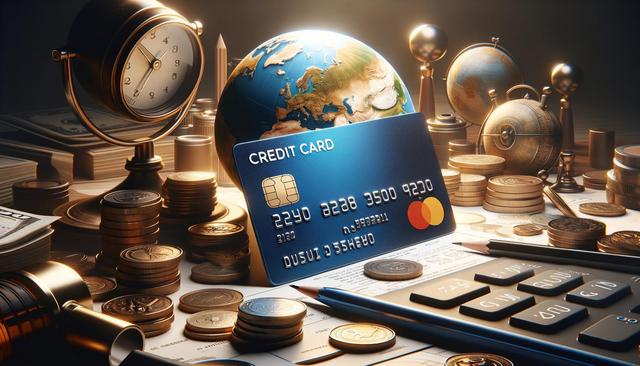What Are Credit Cards and How Do They Function?
Credit cards are financial tools that allow users to borrow money up to a certain limit to make purchases or pay bills. Unlike debit cards, which withdraw funds directly from a checking account, credit cards provide a line of credit that must be repaid later, often with interest if not paid in full by the due date. They are issued by financial institutions and come with a variety of features, including rewards programs, cashback offers, and different interest rates.
For those looking to build or repair credit, credit cards with no credit checks offer a lifeline. But how do they work and what should you consider before applying? These types of cards are typically designed for individuals with limited or poor credit history. Since they do not require a credit check, they can be a useful option for starting or restarting your credit journey. However, they often come with higher fees or interest rates, which should be taken into account when choosing the right card.
Credit Cards with No Credit Checks: How They Work
Cards without credit checks operate differently from traditional credit cards. Usually, these are secured credit cards, requiring a refundable security deposit that acts as your credit limit. Some unsecured cards also fall into this category, but they may come with stricter terms and higher fees to offset the risk to the issuer.
These cards report your payment activity to major credit bureaus, helping you build a credit history over time. This is a key benefit for individuals who may have been denied traditional cards due to a lack of credit or past financial issues.
- Security deposit often required for secured cards
- Monthly payments reported to credit bureaus
- May have annual or setup fees
- Ideal for credit-building purposes
For those looking to build or repair credit, credit cards with no credit checks offer a lifeline. But how do they work and what should you consider before applying? Understanding the mechanics behind these cards is crucial to using them effectively and avoiding unnecessary costs.
Benefits of Using No Credit Check Credit Cards
One of the most significant advantages of these credit cards is accessibility. They provide a way for individuals with limited financial backgrounds to demonstrate their ability to manage credit responsibly. By making timely payments and keeping balances low, users can gradually improve their credit scores.
Other benefits include:
- Quick approval process
- No impact on your credit report from the application
- Pathway to qualify for traditional credit cards in the future
- Potential for credit limit increases with responsible use
For those looking to build or repair credit, credit cards with no credit checks offer a lifeline. But how do they work and what should you consider before applying? These benefits highlight the importance of making informed decisions when choosing and using such cards.
Risks and Considerations Before Applying
While these cards can be helpful, they are not without drawbacks. High interest rates and fees are common, which can make carrying a balance costly. Some cards may also have hidden charges, such as monthly maintenance fees or transaction fees, that can add up over time.
Key considerations include:
- Reviewing the fee structure carefully
- Understanding the interest rates applied
- Being aware of the credit limit and how it is determined
- Checking if the card reports to all three major credit bureaus
For those looking to build or repair credit, credit cards with no credit checks offer a lifeline. But how do they work and what should you consider before applying? Carefully weighing these factors can help you avoid financial pitfalls and make the most of your credit-building journey.
Tips for Managing Your Credit Card Responsibly
Once you’ve obtained a credit card, managing it wisely is essential for improving your credit score and maintaining financial health. Responsible use involves more than just making payments—it’s about developing strong habits that support long-term creditworthiness.
- Always pay your balance in full if possible
- Make at least the minimum payment on time each month
- Keep your utilization rate low (ideally below 30%)
- Monitor your statements for errors or suspicious activity
For those looking to build or repair credit, credit cards with no credit checks offer a lifeline. But how do they work and what should you consider before applying? Responsible usage is a crucial part of making this opportunity a valuable step toward financial growth.






